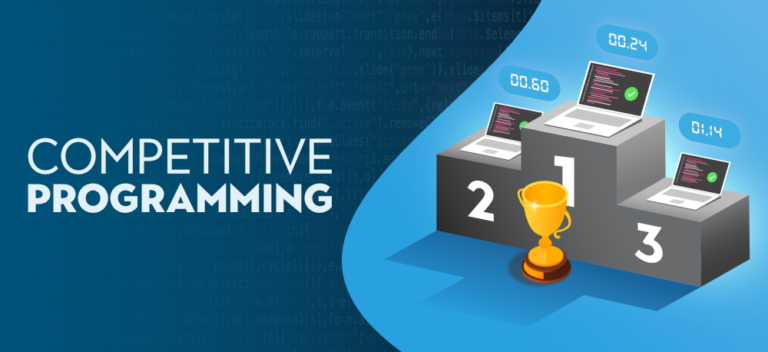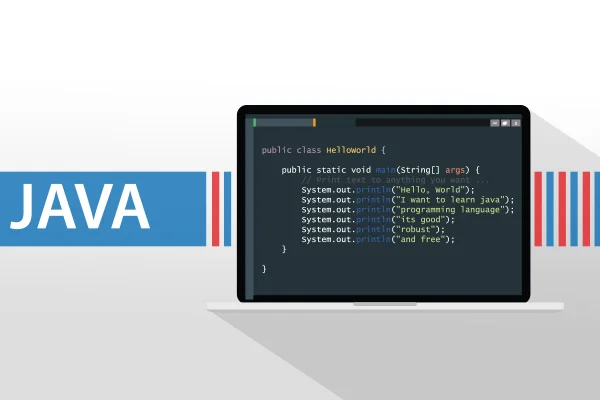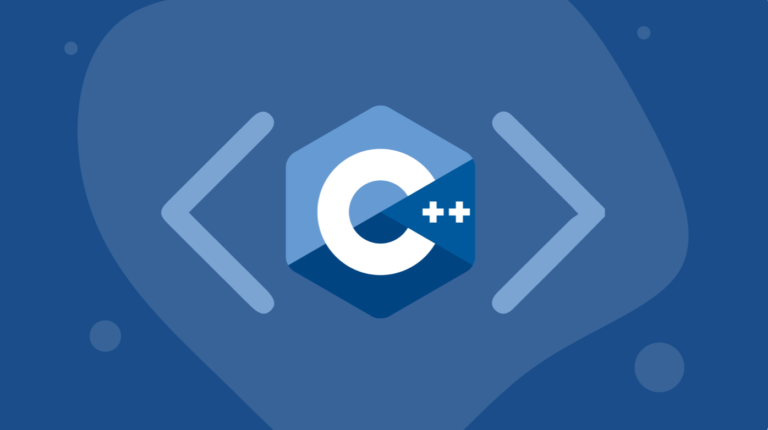
Which Programming Language can help you prepare to join at least two competitions?
Hey there, aspiring code warriors! Are you ready to dive into the exhilarating world of competitive programming? If so, you’ve come to the right place. With rapidly changing trends in the tech world, above 90% of our students are looking for many prestigious programming contests to boost their chances of getting into their ideal universities. Meanwhile, there is a question that is being constantly asked by our new students – What is the best programming language to learn?

We’re going to explore the three best languages for competitive programming that will give you a competitive edge to ace the programming competitions.
But before that, you are probably wondering what is competitive programming. It’s like a battle royale for programmers, where you solve mind-boggling problems using code, race against the clock, and try to outsmart your fellow coders—all while sipping on coffee (or tea, if you’re feeling fancy). The key is picking the right programming language to give you the upper hand. Let’s get to it!

Python: The Swiss Army Knife of Coding
Picture this: You’re in the middle of a coding contest, and the clock is ticking like a time bomb. You need to whip up a solution fast, and you don’t have time for the usual verbose code. Enter Python, the programming world’s equivalent of a Swiss Army knife. It’s fast, it’s easy, and it’s as versatile as a chameleon at a crayon factory.
Why Python Rocks for Competitive Programming?
Readability: Python’s clean and human-readable syntax is a lifesaver when you’re trying to decipher your own code in a hurry. You won’t be squinting at your screen, wondering if that semicolon is where it should be.
- Quick Debugging: Python’s error messages are like a GPS for lost code. They guide you to the problem’s exact location and help you squash bugs faster than you can say, “Why won’t this code work?”
- Readable Input/Output: In competitive programming, you’ll often need to read input and write output quickly. Python makes this a breeze with its input() and print() functions, saving you precious time.
- Community Support: Python’s got a massive fan club that’s always ready to help you out of a coding pickle. Whether it’s on forums, Stack Overflow, or your neighborhood coder’s coffee shop, Python enthusiasts are everywhere.
But, of course, Python has its quirks, like being a tad slower than languages like C++ and Java. However, for most problems in competitive programming, Python’s speed is more than adequate, and the readability advantage makes it a strong contender.

Java: The All-Rounder
If you’re the kind of coder who likes to keep their options open, Java is the language for you. It’s like the all-rounder in cricket who can bat, bowl, and field equally well. Java offers a perfect balance between speed and ease of use.
Why Java is a Solid Choice:
- Portability: Java is the “write once, run anywhere” language. Your code is like a well-traveled diplomat; it can work on any platform without any major issues. This makes Java a go-to language for many competitive programmers.
- Built-in Libraries: Java boasts a rich collection of libraries that can save you valuable time in a contest. From data structures to mathematical functions, Java’s got you covered.
- Automatic Memory Management: Java takes care of memory management for you, so you can focus on problem-solving without worrying about pointers, references, and all that other memory jazz.
- Large Ecosystem: The Java community is vast and supportive. You’ll find plenty of resources, tutorials, and like-minded programmers to help you on your journey.
However, Java isn’t the fastest kid on the block. It can be a tad slower than C++ when executing code. Plus, some programmers find its verbosity a bit like reading an epic novel when all you want is a tweet-length solution. But if you value readability and ease of debugging, Java has your back.

C++: The speedster with a Bulletproof Vest
If competitive programming were a car race, C++ would be the sleek, powerful sports car zooming down the track. It’s known for its breakneck speed and efficiency, making it a top choice for competitive programmers who love a challenge.
Why C++ Rules the Race:
- Speed Demon: C++ is like the Flash of the programming world. It’s lightning-fast and can tackle complex algorithms with ease. When every microsecond counts, C++ is your best friend.
- STL Magic: The Standard Template Library (STL) in C++ is a treasure trove of pre-built data structures and algorithms. It’s like having a magic wand to solve problems quickly. It can save you from reinventing the wheel (or, in this case, the code).
- Memory Management: C++ gives you full control over memory, which is a big plus. You can allocate and deallocate memory like a pro, ensuring your code is as efficient as possible.
- Competitive Spirit: Many contests, like ACM ICPC, have native support for C++, making it an excellent choice for those aiming to ace such competitions. It’s like having a favorite horse in a race.
But, wait, there is a catch. C++ isn’t the most beginner-friendly language. Its syntax can be a bit overwhelming, and memory management can be like trying to juggle flaming torches. But don’t worry; with practice and patience, you’ll get the hang of it.
Here we recommend two most prestigious programming competitions in North Amercia to try. Let’s take a look at each of them:

1. Canadian Computing Competition (CCC):
The CCC is a contest for high school students in Canada, and it serves as the first round of selection for the Canadian team in the International Olympiad in Informatics (IOI).
2. USA Computing Olympiad(USACO):
USACO is one of the most well-known and competitive programming contests for high school students in the United States. It consists of four rounds, with increasing difficulty, and participants can represent the USA in international competitions.
CCC and USACO both allow C++, Java, and Python for their programing contests. These languages are widely used by participants, and they have well-defined standard libraries and good support for algorithmic problem-solving.
Preparation
Lastly, the most important part is preparation CCC problems are moved to an online judge called DMOJ: https://dmoj.ca where people can discover problems to the solved, submit solutions, and compare their code with how others have solved problems). They have discussions and editorials(approaches to problem-solving by eminent problem solvers). Similar to this, USACO provides resources to practices as well.
At BitSpace Education, we believe a structured approach is necessary for problem-solving. We break the steps into:
- Understanding the problem. Make use of a framework called Algo Design Canvas.
- Representing the Problem visually.
- Solving the sample input tests manually.
- Comping up with patterns for solutions.
- Create new test cases(edge cases and an average case).
- Identifying the Brute-Force solution, the time and space complexities.
- Improving the Brute-Force solution if needed(some problems have lower limits and do not need efficient solutions).
- Solve the initial few problems(at least 50) on paper.
- Code up an efficient solution in an integrated Development Environment(IDE) like Visual Studio Code, IntelliJ, IDLE.
- Submit the solution online to the judge (DMOJ or USACO) and get AC(Accepted).
In our coding programs, we focus on Java and Python primarily because Java can be used for AP Computer Science, CCC, and USACO competitions, once you get a hang of it, you could consider joining all of them at once, which saves you much more time for contest prepartion.

In conclusion, the best programming language for competitive programming really depends on your personal preferences and experience level. If you’re just starting, Python is a fantastic choice due to its readability and ease of use. As you gain more experience and speed becomes crucial, you might want to explore the world of C++. And if you’re looking for a versatile middle ground, Java is the way to go.
Remember, the key to sucess in competitive programming is not just the language you choose but the effort you put into honing your problem-solving skills. So pick you coding weapon of choice, practice like a champ, and may the bugs be ever in your favor!
And there you have it! The top three programming langues for competitive programming in all their glory. Whether you’re a python-loving wizard, a C++ speedster, or a Java all-rounder, the competitive programming arena welcomes all learners. Happy coding, and may your solutions be swift, bug-free, and fulfilling!